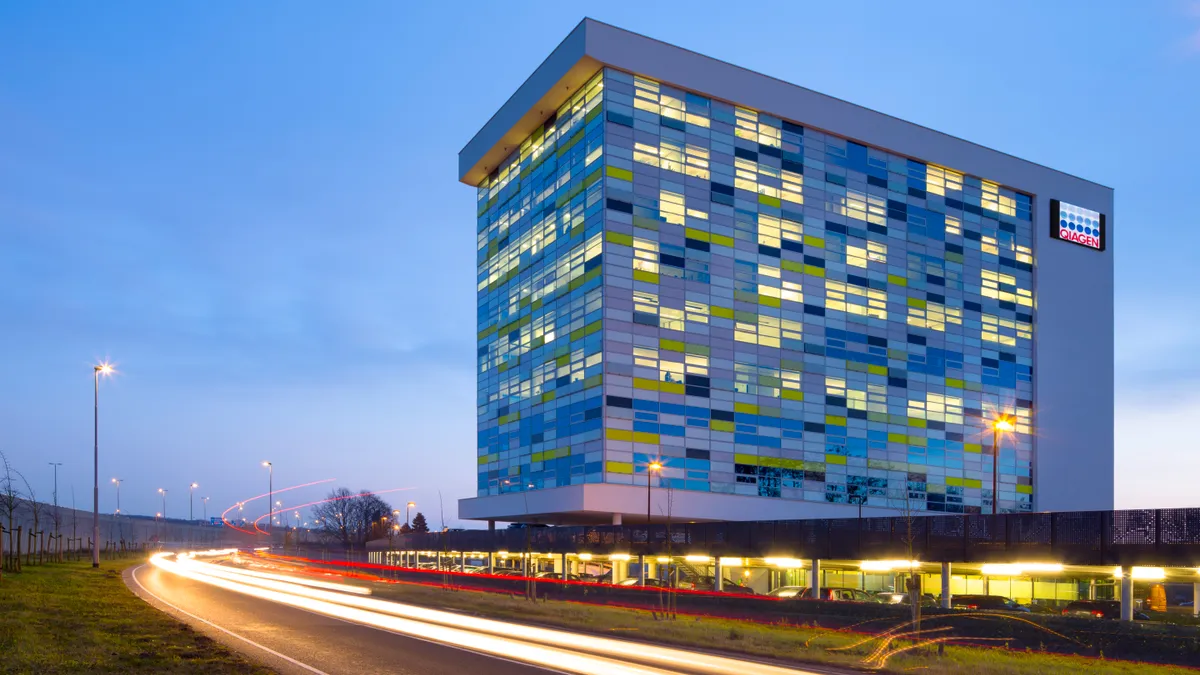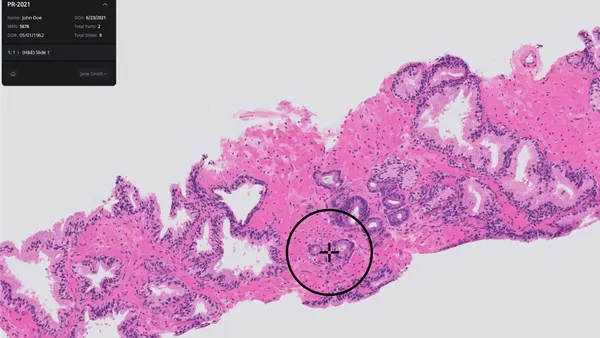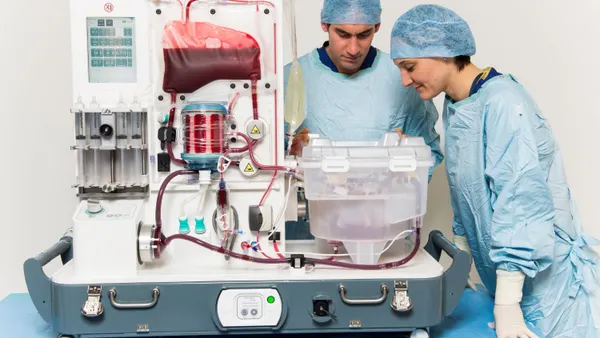Dive Brief:
-
Qiagen on Tuesday published second quarter results that reveal soaring demand in Asia Pacific and other ex-U.S. territories is driving sales growth during the COVID-19 pandemic.
-
The results, building on a preliminary release shared last month, show sales in the Americas fell in the second quarter. Double-digit growth in the Europe, Middle East and Africa (EMEA) region and Asia Pacific offset the decline in the Americas, causing global revenue to rise 16%.
- Qiagen secured a higher takeover offer from Thermo Fisher Scientific shortly after sharing the preliminary second quarter results. However, hedge fund Davidson Kempner, which now owns 8% of Qiagen, is dissatisfied with what it sees as a “wholly inadequate” takeover offer.
Dive Insight:
Qiagen outlined the effect COVID-19 is having on its business in preliminary results last month. At that time, it said sales rose 16% in the quarter, driven by a 45% jump in instrument sales and a 12% increase at the larger consumables business. Qiagen achieved the growth despite seeing sales of its QuantiFERON-TB test for tuberculosis detection fall 46%. Adjusted earnings per share rose 70%.
On Tuesday, Qiagen shared further details of the products and regions behind the growth. Qiagen singled out its QIAsymphony automation system and QIAcube sample processing units as drivers of the jump in instrument sales. Demand for RNA sample technology kits and QIAstat-Dx cartridges contributed to rising consumables revenues, as did sales of reagents to other diagnostic companies.
With COVID-19 affecting countries around the world, buyers in all markets are potentially interested in the diagnostic products sold by Qiagen. However, the second quarter results reveal big differences between Qiagen’s performance in different regions.
Sales in the EMEA region grew 40% in the quarter. Qiagen reported a 20% increase in Asia Pacific. The Asia Pacific results were dragged down by China. Excluding China, sales in Asia Pacific increased 32%.
The Americas are the outlier. Sales fell 2% in the region in the second quarter. The Americas are a key region for Qiagen, last year accounting for 47% of sales. The figure fell to 40% in the second quarter. Other diagnostic companies appear to have delivered stronger results in the region, although differences in the composition of product portfolios and the grouping of geographies make it hard to draw firm conclusions from the comparisons.
Demand for COVID-19 tests helped Hologic grow U.S. diagnostic sales by 90% in its third quarter, compared to a 26% rise internationally. Roche’s molecular diagnostics sales climbed 65% in EMEA and 62% in North America over the first half of 2020, resulting in a global increase of 61%. At Abbott, sales of molecular diagnostics in the U.S. and internationally increased by more than 200% in the second quarter. Qiagen posted smaller increases in even its strongest geographies and business lines.
Qiagen expects the third quarter to follow a similar pattern to its latest set of results. As revealed last month, it expects sales to rise up to 21% on a constant-currency basis in the third quarter and up to 18% for the full year. While Qiagen is assuming a vaccine will become widely available in 2021, it still expects double-digit sales growth next year as other parts of its business recover from the pandemic.
Thermo Fisher agreed to raise its bid for Qiagen by 10% within days of the publication of the outlook for the third quarter and full year. Qiagen’s supervisory and management boards reaffirmed their unanimous recommendation that shareholders accept the offer on Tuesday. Thermo Fisher’s offer to acquire shares is set to expire on Monday.
Davidson Kempner is still pushing for a better offer. The hedge fund began this week by revealing it has increased its stake in Qiagen from 7.3% to 8% and thinks the company has a standalone fair value 9% to 18% higher than Thermo Fisher’s revised offer.
“We fully expect the current offer to fail and we view the current price level as a very attractive entry point. We remain confident in Qiagen's prospects and that the standalone value is attractive over both the short and long term,” the hedge fund wrote in a statement.












